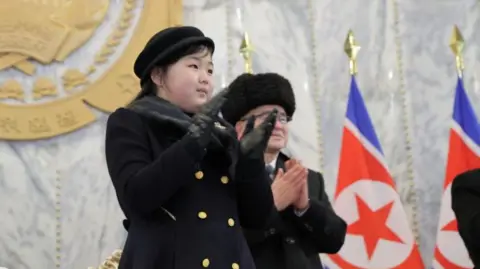Strategists and supporters within the party expressed their confusion and disappointment at the outcome. Shakir Chambers, a Conservative strategist, noted, "Nobody's happy about that," as the party gears up to redefine its role as the Official Opposition in Parliament without Poilievre present. Following his defeat, Poilievre announced plans to contest a special election in Alberta, where he is expected to easily regain a seat, following the resignation of Conservative MP-elect Damien Kurek. Kurek highlighted the need for Poilievre's presence in the House, underscoring the momentum he believes the leader has created during the campaign.
As conservative leaders rally behind Poilievre in light of this potential comeback, the question remains as to whether he will retain support within his party. While some insiders, like Chambers, assert his strong backing persists, others point fingers at provincial leadership for contributing to the party's downfall. Jamil Jivani, a newly-elected MP, criticized Ontario's Premier Doug Ford for detracting from the federal campaign and failing to align with Poilievre's objectives.
Despite the party's recent high watermark in the polls, leadership dynamics are under scrutiny. Critics, including campaign strategists, suggest that Poilievre's combative style may have alienated voters in different regions of Canada, particularly in the east. Comments from Ford's campaign manager indicate that the party must reevaluate its strategy to unify Conservative support across the diverse Canadian landscape.
As the debate over leadership and strategy unfolds, the sense of urgency for soul-searching within the party grows. Calls for unity and collaboration echo among various party figures as they navigate the complex political landscape after a disappointing electoral night. Emphasizing the need to engage with young voters and connect with constituents uniformly, the conversation turns to how the Conservative Party can reconstruct its identity to reclaim its position on the national stage.
The future direction of Canada's Conservatives hangs in the balance as they grappling with these challenges ahead of parliamentary meetings next week.
As conservative leaders rally behind Poilievre in light of this potential comeback, the question remains as to whether he will retain support within his party. While some insiders, like Chambers, assert his strong backing persists, others point fingers at provincial leadership for contributing to the party's downfall. Jamil Jivani, a newly-elected MP, criticized Ontario's Premier Doug Ford for detracting from the federal campaign and failing to align with Poilievre's objectives.
Despite the party's recent high watermark in the polls, leadership dynamics are under scrutiny. Critics, including campaign strategists, suggest that Poilievre's combative style may have alienated voters in different regions of Canada, particularly in the east. Comments from Ford's campaign manager indicate that the party must reevaluate its strategy to unify Conservative support across the diverse Canadian landscape.
As the debate over leadership and strategy unfolds, the sense of urgency for soul-searching within the party grows. Calls for unity and collaboration echo among various party figures as they navigate the complex political landscape after a disappointing electoral night. Emphasizing the need to engage with young voters and connect with constituents uniformly, the conversation turns to how the Conservative Party can reconstruct its identity to reclaim its position on the national stage.
The future direction of Canada's Conservatives hangs in the balance as they grappling with these challenges ahead of parliamentary meetings next week.




















